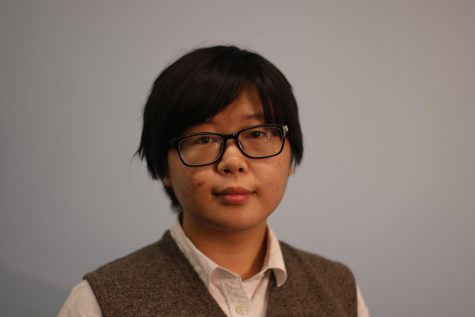Kim: Using the summer to get ahead
As the semester comes to a close, my friends and I have been discussing our summer plans. Several of them plan to stay in Cleveland and take courses over the summer; others have lined up part-time jobs; one is going abroad to work on his senior thesis and everybody is on the hunt for summer internships, including me.
Not one of us mentions relaxation, decompressing from the school year by spending time with the families and hometown friends. Somehow, while we weren’t looking, summer became a time to get ahead rather than a time to take a break.
I say that, but the concept of summer break wasn’t natural to begin with. Summer vacations were created for the privileged. America’s unusual school calendar is attributed to the agrarian community and how they took out their children to help farm over the summer, but the story is just that—a story.
Busy times for farmers are typically spring and fall, when they need to plant and when they need to harvest—not the summer. What really happened was that rich people in urban areas wanted to go on vacations when it was hot outside. When the time came to develop a standard school calendar, summer was omitted, as children would be taken out of school then anyway. Presumably, most of us are not rich and do not have the ability to simply relax.
Our summer options are limited to schoolwork and work experience which help us ahead. Credits for summer courses cost half the price as those of fall and spring credits at Case Western Reserve University, which is a strong incentive to stay in school. The courses are useful for students who decide to change their major and need to fulfill educational breadth requirements, and also for those who need to take a Seminar Approach to General Education and Scholarship (SAGES) class. Students can also choose to focus on one difficult course rather than balancing it with four other courses and a part-time job during the normal academic year.
Otherwise, we can gain work experience over the summer for when we eventually enter the job market. Through part-time work, internships or volunteer work, we can develop our resumes. You can earn money (though not all internships will be paid, and volunteering is free) and make connections. Speaking from personal experience, my summer volunteering led me to a paid position during the academic year.
Earlier this semester, The Athenian published a piece on students taking “Alternative Alternative Spring Breaks” because alternative spring breaks—volunteering during your spring break—has become too mainstream. Just relaxing isn’t something we can afford to do, money-wise or experience-wise.
While it would be nice to not worry about early mornings or office politics, we’re a stressed group of people during the school year. Our trend toward working all the time is troubling, but it’s better than the alternative of overextending ourselves during the academic year.
Won Hee Kim is a second-year English major with minors in economics and creative writing. She recommends that humanities majors looking for unpaid internships check out Humanities@Work summer funding. The application deadline is Friday, May 4.

Won Hee Kim is a human being who is eager to escape from a fourth-year of higher education into a cold, corporate world. Case Western Reserve University...


